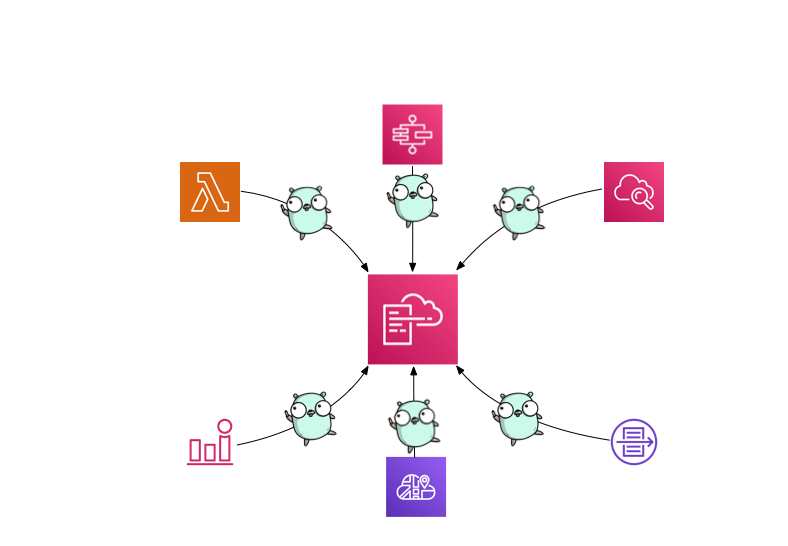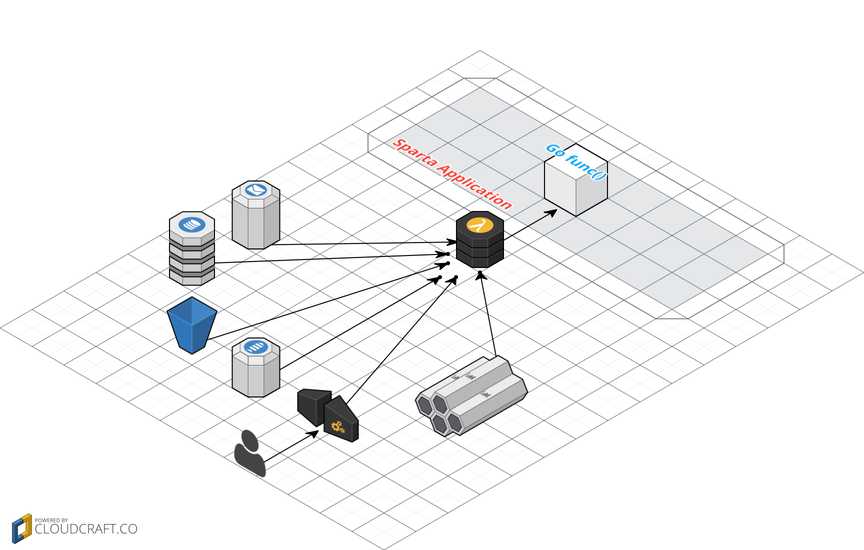
Serverless go microservices for AWS
Sparta is a framework that transforms a go application into a self-deploying AWS Lambda powered service.All configuration and infrastructure requirements are expressed as go types for GitOps, repeatable, typesafe deployments. |

|
Features
UnifiedUse a go monorepo to define and your microservice's:
|
Complete AWS EcosystemSparta enables your lambda-based service to seamlessly integrate with the entire set of AWS lambda event sources such as:
|
SecurityDefine IAM Roles with limited privileges to minimize your service's attack surface. Both string literal and ARN expressions are supported in order to reference dynamically created resources. Sparta treats POLA and #SecOps as first-class goals. |
DiscoveryA service may provision dynamic AWS infrastructure, and discover, at lambda execution time, the dependent resources' AWS-assigned outputs ( |
API GatewaysMake your service HTTPS accessible by binding it to an API Gateway REST API during provisioning. Alternatively, expose a WebSocket [APIV2Gateway](https://aws.amazon.com/blogs/compute/announcing-websocket-apis-in-amazon-api-gateway/) API for an even more interactive experience. |
Static SitesInclude a CORS-enabled S3-backed site with your service. S3-backed sites include API Gateway discovery information for turnkey deployment. |

Sparta relies on CloudFormation to deploy and update your application. For resources that CloudFormation does not yet support, it uses Lambda-backed Custom Resources so that all service updates support both update and rollback semantics. Sparta’s automatically generated CloudFormation resources use content-based logical IDs whenever possible to preserve service availability and minimize resource churn during updates.
Getting Started
To get started using Sparta, begin with the Overview.
Administration
- Problems? Please open an issue in GitHub.
Questions?
Get in touch via:
Related Projects
- go-cloudcondensor
- Define AWS CloudFormation templates in
go
- Define AWS CloudFormation templates in
- go-cloudformation
gotypes for CloudFormation resources
- ssm-cache
- Lightweight cache for Systems Manager Parameter Store values
Other resources
- AWS SAM
- Build an S3 website with API Gateway and AWS Lambda for Go using Sparta
- AWS blog post announcing Go support
- Sparta - A Go framework for AWS Lambda
- Other libraries & frameworks:
- Supported AWS Lambda programming models
- Serverless Code Blog
- AWS Serverless Multi-Tier Architectures Whitepaper
- Lambda limits
- The Twelve Days of Lambda
- CloudCraft is a great tool for AWS architecture diagrams